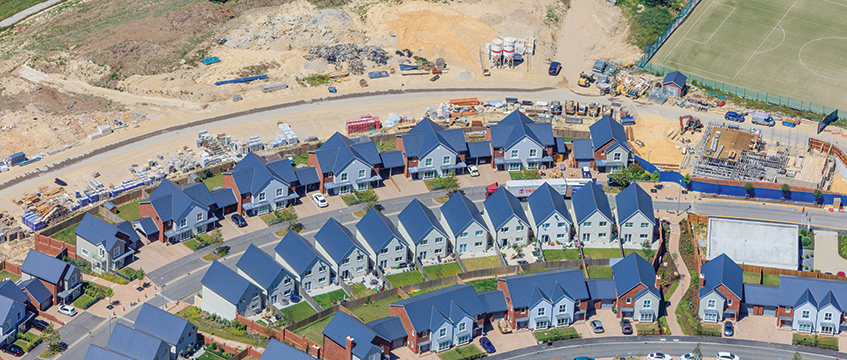COMMENT Homes England and Urban Splash sure set the heather alight the other day with their announcement that Sekisui House, Japan’s biggest housebuilder, will decisively move into the UK housing market “with immediate effect” after striking a multi-million pound deal “to deliver thousands of new homes across England”.
Sekisui House is not only the biggest in Japan – it is one of the world’s leading housebuilders. Moreover, and most significantly, it is a pioneer in modular construction. So these new homes are all to be factory built, utilising the existing modular platform developed by the admirable Urban Splash – for some time the only housing disruptor with any real heft in the troubled market – with Sekisui taking a 35% stake in the Splash modular business, and then supporting that by sharing their own modular expertise.
It’s about time
To say this is a most welcome development would be a breathtaking understatement. Some of us more bien pensant folk in the industry seem to have been talking about this for decades. For those of us who are old enough to have been around when Stuart Lipton was innovating “toilet pods” at Broadgate, this latest announcement is a bit like a dying man finding an oasis in the desert. Fans of modular construction (or MMC – Modern Methods of Construction, in old money) have all seized upon the advent of Sekisui House to these shores, applauding it to the rafters as the long-awaited breakthrough, or tipping point.
Mark Farmer, the indefatigable patron saint of modernising construction, rightly hailed it as the UK “finally moving towards a more sustainable and scalable model that will deliver real innovation and additionality“.
So by any analysis, it is seriously good news. A richly deserved success for Urban Splash. And a clear signal that Nick Walkley and Ed Lister’s Homes England is indeed the “muscular housing agency” desirous of central Government. Let’s hope that Sekisui/Splash prove to be the sorely needed change agents, ready to revolutionise the housing market. Not to put too fine a point on it, we are looking for a similar effect as Amazon had to the retail sector. No pressure or anything.
Sadly, however, there is still a way to go. The last thing in the world I want to do is suck in my teeth here, but I do bear the scars. I have just managed to get a planning permission for housing on a site, which was zoned for housing, and where I was wholly compliant with all planning policy, acquiesced to every single s106 demand, and where I had the support of the local community and the local authority. It still took me three years – and that is being hailed as extraordinarily swift. The standard time for approval of a 1,500-home scheme is closer to double that. Delivering homes in any quantity here, in these cramped islands, takes an inordinate amount of time. Urban Splash will need to take Sekisui House on a very steep learning curve in regard to the lengthy lead times needed, both for land acquisition and planning approvals. So let’s hope Sekisui can be patient from the start.
Vision for the future
For those who might have bought into the holy grail that prefabrication will immediately speed everything up and lower prices, well whoa! Stop right there. MMC is not the market panacea. It is very unlikely that either faster delivery, or cheaper homes, will be achieved through factory built housing. Or at least, not at first. But that doesn’t mean that we shouldn’t still be welcoming this with open arms. It is wholly necessary, imperative, that we need to modernise, even merely to maintain the status quo on housing numbers.
A million operatives are set to leave the construction industry, mainly through retirement, by the end of next year. Very few are joining it. We are short on skilled brickies (and bricks, come to that) who are now able to exert a disproportionate amount of power in the supply chain. Young people, rightly, do not see much of a future in a career which puts you out in the cold and wet for much of the year; a warm, precision tooled, technologically enabled, modern factory setting just has to be more attractive. And then there are the fraught issues of climate change: the simple fact is it is not sustainable to continue to build homes in much the same way as we did 100 years ago.
We do need to change. And change fast. So it is salutary that history shows us that progress in housebuilding is normally evolutionally rather than revolutionary. Let us fervently hope that history can be bucked, and that things can indeed radically change. Sekisui House is a most welcome addition to the party.
Jackie Sadek is chief operating officer at UK Regeneration











